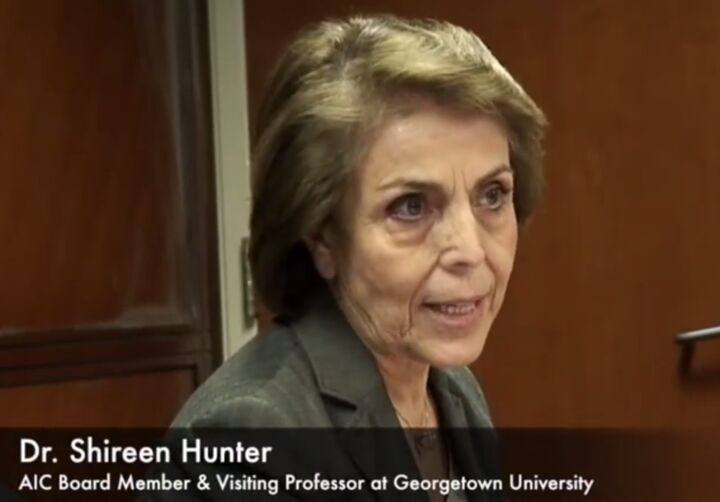TEHRAN(Bazaar) –Shireen Tahmaasb Hunter, a professor of political science at Georgetown University, tells the Bazaar Iran's economy is competitive with those of EUEU's members, including Russia in the energy sector.
She says: “Russia wants to make sure that the US does not renege on its promise.”
“Beyond this, the inclusion of the guarantee in the JCPOA has no extra effect,” Hunter comments.
Following is the text of the interview:
Bazaar: Russian Foreign Minister Lavrov announced that the United States had given a written guarantee to Russia for the JCPOA. What is your assessment and why was such a guarantee given to Russia by the U.S.?
Hunter: My understanding is that the US has given guarantees that it would not interfere with Iran-Russia cooperation to the extent that it relates to the JCPOA and the nuclear issues. It has not given guarantees that other aspects of Iran-Russia economic cooperation would not be affected.
Bazaar: Lavrov had stated that the US guarantee would also be included in the text of the JCPOA. Doesn't this situation make it difficult to implement the agreement?
Hunter: This is quite possible. Russia wants to make sure that the US does not renege on its promise. Beyond this, the inclusion of the guarantee in the JCPOA has no extra effect.
Bazaar: During his visit to Russia, Hossein Amir-Abdollahian sought to ensure Russia's support for the Vienna talks. The trip discussed the legal regime of the Caspian Sea, Iran's membership in the Eurasian Economic Union, and a long-term agreement with Russia (20 years agreement). Doesn't this mean that Russia has linked cooperation in the JCPOA to these issues?
Hunter: Russia's policy since the Islamic revolution has been to manipulate Iran to its own ends. Iran's conflictual relations with the US and Europe has provided Moscow with the tools to pursue this policy. On the Caspian's legal regime, Russia has ignored Iran's rights in favor of Azerbaijan and other states. I do not believe that joining the Eurasian Economic Union (EAEU) has any benefits for Iran. Iran's economy is competitive with those of EUEU's members, including Russia in the energy sector. Russia wants to dominate Iran and keep it weak and isolated from the international community. I find it strange that, after forty years of experience, some of Iran's political leaders still have illusions about Russia's intentions towards Iran. Disliking the West should not lead Iran to submit to Moscow or Beijing.
Bazaar: How do you assess the future of the talks, given the US written guarantee to Russia?
Hunter: based on information that I have seen in the press, in addition to the last minute Russian ploy, there are still a few intractable disagreements remaining between Iran and the US. Therefore, it's still difficult to predict with certainty whether an agreement would finally be reached in Vienna. The US wants an agreement, especially in light of the Ukraine war and the potential energy crunch, but has its red lines. Iran also seems to want an agreement, but it also has its red lines. The question is whether Tehran's and Washington's red lines could be reconciled.
















نظر شما